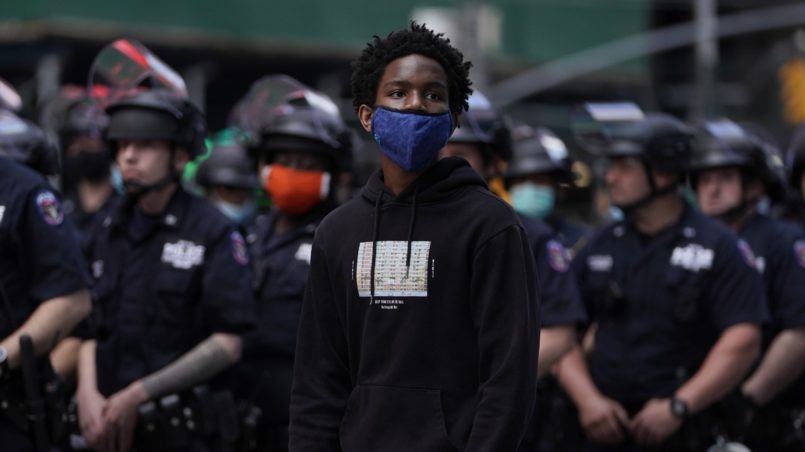Progress in Organizing: Minneapolis Says No to Police in Public Schools
Progress in Organizing: Minneapolis Says No to Police in Public Schools
The Schott team is personally devastated by the brutal killing of George Floyd, yet one more tragedy that further exposes the deep systemic racism in America. We mourn for his family, and for all Black families who must continually face the fear of death at the hands of the police or, as we have seen during COVID-19, from inequities in our health care system.
The changes needed to truly eradicate systemic racism cut cross every sector, from health, to policing and incarceration, to housing and employment, to our public education system. We want to lift up one ray of hope in this dark moment: The Minneapolis Board of Education made an important step in that journey when it voted to sever its relationship with the Minneapolis Police Department (MPD), which until now had been the recipient of more than $1 million in education funds to put its officers in schools. The danger of police officers in schools—and their contribution to creating the school-to-prison pipeline that threatens so many children of color—is well documented and their removal has been a central demand of education justice organizations that Schott is proud to support, including members of the Dignity in Schools Campaign and the Journey for Justice Alliance. (To learn more, visit DSC’s “Counselors Not Cops” initiative.) As solidarity between teachers, parents, and students has grown, the decision was also supported by the Minneapolis Federation of Teachers.
While each loss of life and each moment is unique, the dynamic at work—the inevitable result of policing under white supremacist systems—is a story as old as the antebellum slave catchers. We believe philanthropy has a particular role to play in assisting the dismantling of these oppressive systems—and that is to fund community-based organizations led by people of color. Not for a short-term project, but for the serious, sustained effort to build their capacity, to help grow their critical organizing efforts to make community voices heard and impact the policy decisions that affect their lives. In short, to invest in strengthening the infrastructure of the justice movement. That is the work we engage donors to support and build capacity around every day—and as heavy as our hearts are now, we will continue even more fiercely—in partnership with other CONTINUE READING: Progress in Organizing: Minneapolis Says No to Police in Public Schools | Schott Foundation for Public Education























